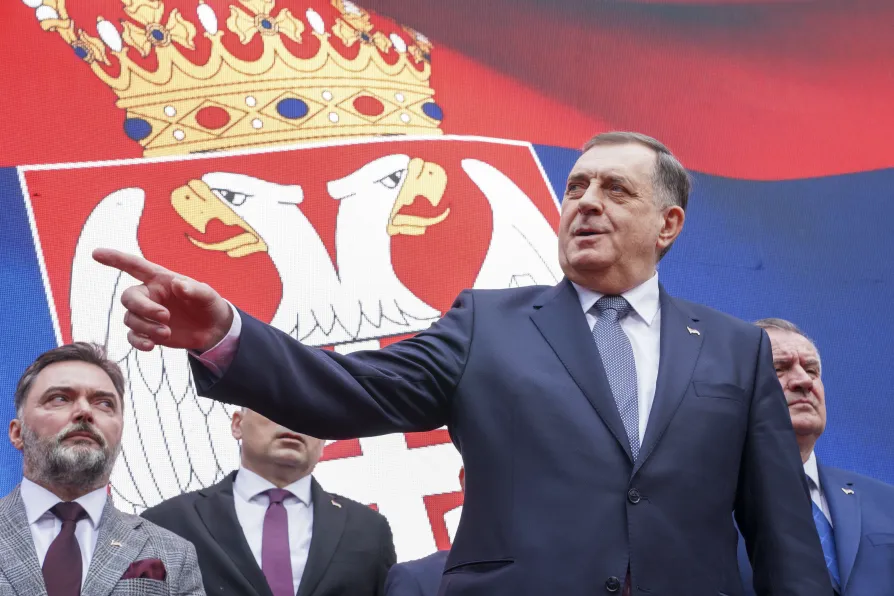
 Bosnian Serb President Milorad Dodik speaks after a court sentenced him to one year in prison and banned him from engaging in politics for six years over his separatist actions, during a rally in the Bosnian town of Banja Luka, 240 kms northwest of Sarajevo, February 26, 2025
Bosnian Serb President Milorad Dodik speaks after a court sentenced him to one year in prison and banned him from engaging in politics for six years over his separatist actions, during a rally in the Bosnian town of Banja Luka, 240 kms northwest of Sarajevo, February 26, 2025
BOSNIA officials challenged a set of laws today barring the state judiciary and police from operating in the Serb-controlled part of the country.
The complaint, filed at the country’s Constitutional Court jointly by Bosnian presidency member Denis Becirovic and two other officials, argues that the laws passed a week ago by Bosnian Serb politicians violate Bosnia’s constitutions and a peace agreement that ended Bosnia’s 1992-95 war.
Bosnian Serbs passed the disputed laws after a Bosnian court convicted Milorad Dodik, the pro-Russia president of the Serb-run entity in Bosnia called Republika Srpska.

As Britain marks 80 years since defeating fascism, it finds itself in a proxy war against Russia over Ukraine — DANIEL POWELL examines Churchill’s secret plan to attack our Soviet allies in 1945 and traces how Nato expansion, a Western-backed coup and neo-nazi activism contributed to todays' devastating conflict













